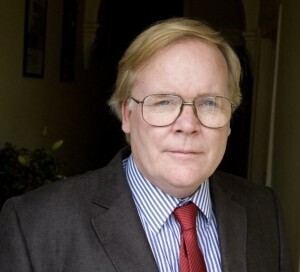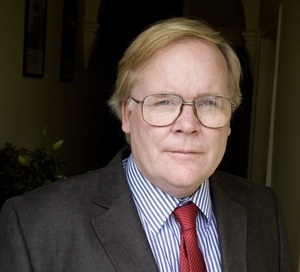From top: Irish army soldiers leave an armoured personnel carrier while taking part in pre-Golan Heights deployment training in the Glen of Imaal, County Wicklow; Michael Taft
What great fun following President Donald Trump’s global tutorial on how to win friends and influence people.
Particularly intriguing is Trump’s claim that European members of NATO are not spending enough on ‘defence’ and that they should increase defence spending to 2 percent of GDP immediately, and even double this target to 4 percent.
Throw in a bit of German-bashing and Euro-trashing and it was a great summit.
But this Trump-watching fun masks the dismal fact that global military spending is crowding out the investment necessary to create international stability and security.
All the countries of the world spend $1.7 trillion on their militaries (or approximately €1.5 trillion). The US accounts for 35 percent of that spending (it’s expensive maintaining an empire), while Europe accounts for another 20 percent.The world spends 2.2 percent of its GDP on the military – up from 1.6 percent in 2007.
In short, these are obscene numbers.
And now the EU is getting involved in this growing military-mania with PESCO: Permanent Structured Cooperation, as in European security and defence. This issue got an outing some time ago in the Dáil when TDs debated joining.
Proponents sought to present the issue as one of voluntary cooperation on a range of issues, including peace-keeping missions with opt-outs available, while opponents raised important concerns over neutrality and Ireland’s global role.
One doesn’t have to be a fully signed-up peacenik to be concerned about rising military spending in Europe.
While PESCO imposes no binding target for total defence spending, there is the NATO target of 2 percent and the institutional entanglement between the two:
‘Enhanced defence capabilities of EU Member States will also benefit NATO . . . A long term vision of PESCO could be to arrive at a coherent full spectrum force package – in complementarity with NATO, which will continue to be the cornerstone of collective defence for its members.’
And then there’s this commitment among signed-up PESCO members:
Participating Member States subscribe to the following commitments:
1. Regularly increasing defence budgets in real terms, in order to reach agreed objectives.
Of the 20 commitments in the Notification on Permanent Structured Cooperation, increasing military spending is the very first.
To reach 2 percent of GDP spending EU-wide would require a considerable amount of redirecting resources and opportunity costs.
There are only three countries that currently spend this amount on the military and one of them – the UK – soon won’t be with us.
Though the Government was quick to point out that signing up to PESCO doesn’t mean that Ireland has to increase it’s spending to 2 percent, we shouldn’t be surprised if pressure is put on individual national defence budgets.
Joining PESCO with the commitment to the triple-lock (Government and Dáil approval, and UN authorisation before Irish involvement in overseas missions) may seem to provide some cover, but we should be prepared for militarisation-drift. Already, Fine Gael MEPs have called for Ireland to fully join the EU Defence Union.
So what would a 2 percent military spending level mean for the EU as a whole?
In 2016, it would have meant and increase of €100 billion, or 50 percent. That is a significant sum.
What about other urgent priorities within the EU?
To return public investment spending to pre-crash levels would require an additional €77 billion; and to make up for the lost years in recession, the increase would be multiples of that.
There are 118 million people in the EU who are at-risk of poverty or social exclusion, with 80 million experiencing deprivation
There are 21 million people unemployed in the EU, of whom 8 million are long-term unemployed
These are just a few of the urgent economic and social priorities that should be addressed, priorities that would be undermined if greater resources are devoted to military spending.
Ireland is seeking a seat on the Security Council. What it wants to do with it is still a bit of a mystery. Here are a couple of ideas:
Put nuclear disarmament and the elimination of all weapons of mass destruction back on the agenda – these are terror weapons that have no place in any country’s armoury
Launch a drive to reduce military spending – in the long- term to 1 percent in each country and re-direct the savings into international social, environmental and economic programmes under the auspices of the UN
Ireland would speak with some authority. It recently won the Arms Control Person of the Year.
Reducing military expenditure is, of course, dependent on resolving the myriad conflicts throughout the world – Palestine, Yemen, Syria, Sudan, Kashmir, Kurdish-Turkish conflict, Armenian–Azerbaijani conflicts, Afghanistan, Pakistan-India hostility, Korea; and the list goes on.
It is also about limiting the capabilities of imperialist powers and ventures. In other words, it is about re-establishing the UN, for all its faults, as the driver of peace, conciliation and stability.
But it goes beyond governments and armies. Civil society has a key role in driving change and public opinion. Peace movements have recently been struggling to mobilise social forces: in the US, UK, Israel, Germany, etc. An exception is Japan where there has been mobilisation of support for the de-militarised constitution.
Here, Irish civil society organisations can play a role, based on our historical neutrality, in promoting a new anti-militarisation drive in Europe.
There are peace movements throughout Europe and the potential of a pan-European peace initiative – centred on demands to remove WMDs from European soil, to redirect military spending to social programmes, and to pursue non-offensive defence strategies – could help mobilise public opinion away from militarisation.
The future is up for grabs. We can slide further into the agenda of the military industrial complex as President Dwight D. Eisenhower warned against (yes, a US President and Head of Armed Forces):
‘In the councils of government, we must guard against the acquisition of unwarranted influence, whether sought or unsought, by the military-industrial complex.
The potential for the disastrous rise of misplaced power exists and will persist. We must never let the weight of this combination endanger our liberties or democratic processes.’
Or we can re-start and re-animate a politics and economics of peace. For the world desperately needs fewer and smaller armies.
Michael Taft is a researcher for SIPTU and author of the political economy blog, Notes on the Front.
Rollingnews









……..based on our historical neutrality….
We’re not neutral. Switzerland is neutral.
We’re defenceless.
97.8 percent of the worlds wealth does not get spent on the military.
But the richest 1% now own half the world’s wealth..
https://www.cnbc.com/2017/11/14/richest-1-percent-now-own-half-the-worlds-wealth.html
If you are on a €30k salary, you are in the global 2-3% in terms of income.
But about 30% of the worlds population is under 18… So that’s a big chunk of owning nothingness.
Interesting – I was once told that the UN effectively keep the Defence Forces ticking over. They contribute a lot (all?) of the ammunition used. Ammunition has a use-by date; so any unused ammunition allocated on a peace-keeping mission, can be brought home and used at the firing range!
The UN also pays for each solider on missions (@$1400/month) – are these payments included in the 0.4% of GNI?
Cian – good question. I would imagine the Government’s expenditure is included while the UN subvention would be categorized as a ‘receipt’.
What a waste of money.
I’m going to play devils advocate here.
If NATO is going to slide in significance because of Trumps bolloxing, do you not think that Putin has his eyes on the Baltic countries? I honestly do believe that’s a main objective of his.
Without some pan European co-operation militarily, or NATO, those countries are very exposed.
Unfortunately, that does seem like the reality.